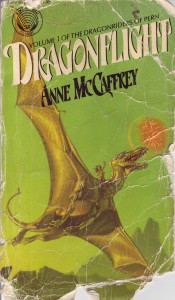Kalayna Price is disappointed in the pattern of her days.
Kalayna, one of my online friends (again someone I’ve never met in person), posted the above on facebook this morning. She, like many of us, is a writer who also works at a “real” job that pays her actual money. She often posts comments at the beginning of her work day, remarking on the fact that she’d rather be writing. She reports on how many words she wrote over her lunch hour. She’s driven and pushes hard for the brass ring we all want: to make enough money writing to quit the day job.
So I know what she means about being disappointed in the pattern of her days. Especially when a few days or a few weeks vanish with not enough writing accomplished. You begin to feel this vague desperation that nothing will ever change, that you’re not trying hard enough, even as something inside you whimpers that you’re already pushed as far as you can go. Maybe it’s like this for everyone who is pursuing a goal.
There’s this whole idea of fractals related to time-management and the pursuit of goals. A fractal is a mathematical construct that demonstrates the concept that very small patterns are echoed in larger patterns. Thus the outline of a pebble is reflected in the outline of a mountain range. So, the idea is, the pattern of each day will create the pattern of your whole life. If you spend 5% of your day dorking around on facebook, then 5% of your entire life is — yeah, you got it.
You can play with this idea, but I can tell you right now: it leads to depression and obsession. One way to explore it is to track your time. Just brace yourself for the results, is all I can say. Then, you try to reapportion your time so that bigger chunks are spent on the things, say, you’d like to see mentioned in your obituary–were you to have the opportunity to see it, which you won’t of course. This is where the obsession comes in. You’ll find yourself scorning the “wasted” time spent on non-obituary-worthy things like sleep and meal preparation. You’ll start parsing out, minute-by-minute, who is wasting your time, which means a chunk of your life, multiplied fractally.
Oh yeah, I’ve been there. And it’s not pretty.
I love to read obituaries. Mostly I’m fascinated by what family and friends consider to be the salient details of their loved one’s life. “Active in her church,” “was happiest fishing in his beloved mountains,” “adored her grandchildren.” Rarely do they reflect a life journey. They might list degrees and accomplishments, books published and prizes acquired. More usually it’s a genealogical record of parentage, marriages, divorces and progeny, with a few personal details thrown in, to liven it up.
My point is, none of us know what the pattern of our lives will be until it’s complete, and then we’ll be too dead to see it. And clearly, unless you get a great biographer interested in you, no one’s going to write anything interesting about it, either.
Days are a random increment of time. A coincidental product of the way our planet spins. Some days we write thousands of wonderful words, other days not at all. Some days we spend in the sun with a margarita by the ocean. Others are spent working on what someone is willing to pay us to do. All of these things make up our lives, in rising and falling waves, constantly changing in amplitude. The pattern of my days now are not what they were like when I was 12 or at 32. I suspect at 62 they’ll be something else altogether.
I trust that what they’ll be is the flowering of what I do now, not an echo.
